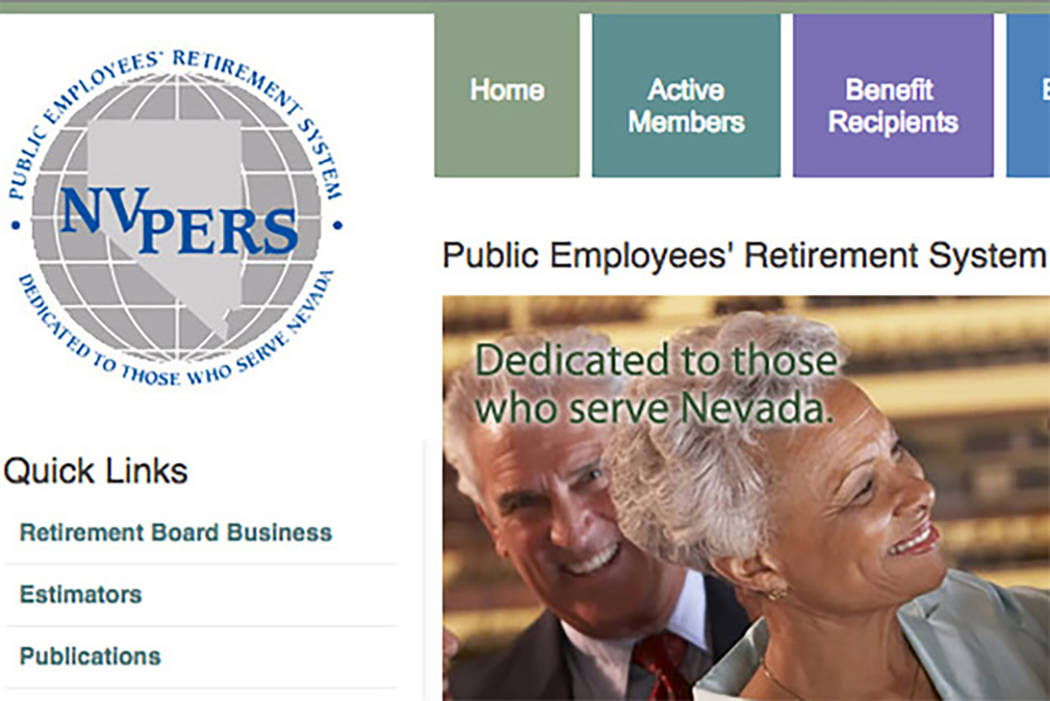EDITORIAL: Why government pension plans are failing and what to do about it
The stock market continues to flirt with record highs, yet government-run pension plans are far from fully funded. That should concern every taxpayer.
The Public Employees’ Retirement System of Nevada, which is officially only 75 percent funded, falls into that category. The funded ratio would be much lower if PERS were held to the same accounting standards that government regulators demand of private companies.
Starting on July 1, contribution rates are increasing to 29.25 percent for regular employees. That’s the fifth increase since 2009, when the rate was 20.5 percent. Government agencies (read: taxpayer) and employees split the contribution rate increase equally.
In a recent National Affairs article, Manhattan Institute senior fellow Josh McGee traces how government pension plans, such as PERS, have ended up in this precarious predicament.
The plans started small and promised modest benefits. For instance, PERS’ initial contribution rate in 1948 was 5 percent on the first $400 in salary. But rates didn’t stay that low in Nevada or around the country. Mr. McGee points out that employer pension costs grew from 9.6 percent to 16.9 percent of payroll from 1988 to 2017.
As workers grew older, the plans expanded by taking in new members. They also grew, because government hiring expanded rapidly. Unfortunately, governments didn’t fully fund the cost of their promises. Part of the reason was that plans unrealistically assumed they would earn investment returns of at least 8 percent annually. For instance, PERS assumed an 8 percent rate of return for decades, before lowering it to 7.5 percent last year.
An 8 percent rate of return wasn’t as risky during the 1980s, when interest rates were high. Pension plans could earn those returns primarily by investing in bonds. But as returns lagged, pension plans moved more money into stocks and hedge funds. Those are riskier, but offer higher returns. Currently, PERS’ target allocation is 72 percent of assets in stocks, real estate and private equity compared to just 28 percent in bonds. In 2003, PERS aimed for an even split between bonds and investments in stocks and real estate.
When the inevitable next downturn comes, it’s going to hit PERS harder than before, because the system has taken on greater risk.
“The upshot of this history is that public pensions are bigger and riskier than ever,” Mr. McGee writes. “Pension liabilities and debt have never been so large relative to taxpayers’ capacity to pay, and pension investments have never been so uncertain.”
All this should sound like alarm bells to an elected officials, starting with Gov. Steve Sisolak. Unfortunately, there’s little evidence he or most politicians — particularly Democrats — care to be bothered. They’re far more interested in currying favor with government unions, which shower them with campaign contributions in return for ignoring the issue and even expanding benefits. Or, in Nevada, for allowing PERS to keep confidential from taxpayers certain information regarding the pension payouts they are forced to fund.
For those interested in addressing the looming crisis, Mr. McGee lays out several recommendations, including linking discount rates to the yield on U.S. Treasury bonds. He also suggests examining mortality assumptions and requiring pension debt be paid off within 15 years.
Another common-sense proposal would be to phase out the defined-benefit pensions that threaten to bankrupt many state and local governments by transitioning new hires into 401(k)-type plans that dominate in the private-sector. A re-evaluation of rules that allow public employees to retire at relatively young ages and collect lifetime benefits should also be in order.
These recommendations will cause short-term pain and won’t be popular with public-employee unions. But that’s what it will take to ensure PERS and public pension systems throughout the country have the ability to make good on the very generous retirement benefits they have promised.






















